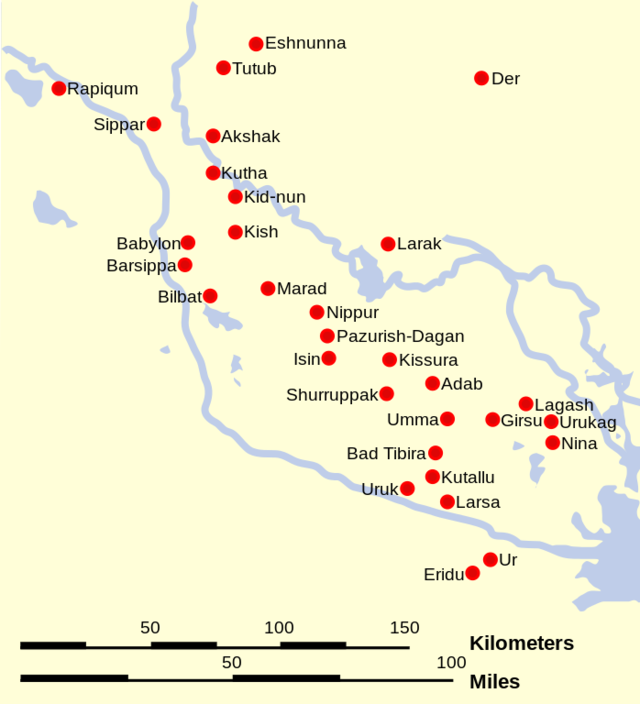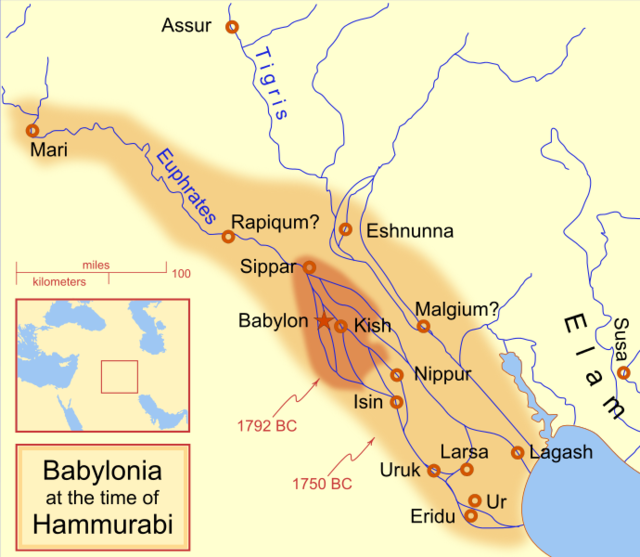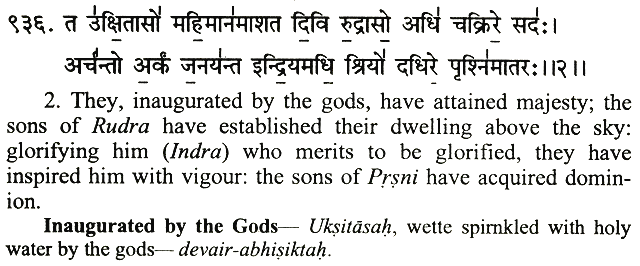ANGIRAS
FAMILY TREE - II
As
being of Angiras
(Nangislishima / Nangishlishma) line having Gautam (Gaudumu
/ Pu'annum)
lineage (Gotra), I was searching for the origins of Angiras and
Gautam since 2018. In the year 2021 I found a Pdf of Lieutenant
Colonel Laurence Austine Waddell in which he has mentioned about
the origins of Angiras (Ali / Nangislishima / Nangishlishma) line
and many other things.
The first Pdf that came in my reading was "The Indo-Sumerian
Seals Deciphered". When I read the first few pages of the Pdf,
I had 3 choices in front of me, 1st that whatever he
has written is false, 2nd whatever he has written is
half truth and 3rd whatever he has written is truth,
but the basic question which came to me was that just by reading
a few pages how can I come to any conclusion?
Hence, I had to read his entire book. When I started to read his
book, I had one after another surprise because all the things which
I had learnt till now, what all I had believed in till now and what
all I considered as truth was different from what he had written
and whatever Lieutenant Colonel Laurence Austine Waddell wrote in
his book was given by concrete evidence.
His book was of special interest to me because it covered the History
related to my Ancestors.
After completing his book I came to know that he had written many
other books but since I was searching only for my Ancestors I have
only read the Pdf of my interest which I am giving below for download.
In
Indian records as well as in his research there is no information
above Angiras (Great Grandfather of King Gautam).
Sumerian
King list :
According
to Sumerian
King list - 1 / Sumerian
King List - 2, Gautam / Gaudumu (Gu-udu-mu-mu) name is mentioned
as Pu'annum / Pu-Annum. He was the 6th Sumerian King in the First
Dynasty of Kish (after c 2900 B.C.) according to Sumerian King List)
who ruled for 840 years (840 years does not mean ruled for 840 years
rather it can also mean that his descendants ruled Kish for 840
years).
Assuming
the date of 2900 B.C. when we calculate till August 2021 we get
4920 years and 7 months which can be the approximate time period
of existance of King Gautam.

Kish

Kish
Kish
is modern Tall al-Uhaimer, ancient Mesopotamian city-state located
east of Babylon in what is now south-central Iraq.
Zababa
(possibly also known as Zagaga) was patron deity associated with
the city of Kish, near Babylon.
To
know more about Zababa Click
here.
To
know more about Kish, various tribles and places Click
here.
Accuracy
of Rig Ved :
|
Veds |
BCE |
AD
calculated from 5 August 2021 |
| Rig
Ved |
1500
- 1200 |
4
days, 7 months and 3,520 years to 4
days, 7 months and 3,220 years
|
| Sam
Ved |
1200
- 1000 |
4
days, 7 months and 3,220 years to 4
days, 7 months and 3,020 years
|
| Yajur
Ved |
1200
- 800 |
4
days, 7 months and 3,220 years to 4
days, 7 months and 2,820 years
|
| Atharv
Ved |
1000
- 900 |
4
days, 7 months and 3,220 years to 4
days, 7 months and 2,920 years
|
|
Above
dates are related to completion of Veds.
Lieutenant
Colonel Laurence Austine Waddell in his book "The Makers of
Civilization in Race and History" mentions Parushni River as
Euphrates.
Rig
Ved also records an incident about Gautam's presence on River Parushni
(Euphrates) along with Maruts / Amorite / Morite / Amurri / Amurru
/ Amurra or Martu.
Rig
Ved also quotes Maruts as the son of River Parushni (Euphrates)
which means that they were born on the banks of River Parushni (Euphrates).
As Gautam was the 6th King of Kish which is located between Tigris
and Euphrates River we come to know the accuracy Rig Ved.
Rig
Ved Mandala 1, Sukt 85, Devta (God) Marudgan (marut), Mantra (Hymn)
936 by Gautam Rahugan :


Another
Translation
Grown
to their perfect strength greatness have they attained; the Rudras
have established their abode in heaven. Singing their song of praise
and generating might, they have put glory on, the Sons whom Parushni
(Euphrates) bare.
Rig
Ved Mandala 1, Sukt 85, Devta (God) Marudgan (marut), Mantra (Hymn)
945 by Gautam Rahugan :

Another
Translation
They
drave the cloud transverse directed hitherward, and poured the fountain
forth for thirsting Gotama. Shining with varied light they come
to him with help: they with their might fulfilled the longing of
the sage.
Rig
Ved Mandala 1, Sukt 89, Devta (God) Vishvadeva, Mantra (Hymn) 975
by Gautam Rahugan :


Another
Translation
The
Maruts, Sons of Parushni (Euphrates), borne by spotted steeds, moving
in glory, oft visiting holy rites, Sages whose tongue is Agni, brilliant
as the Sun,-hither let all the Gods for our protection come.
To
know more about the location where Maruts gave water to King Gautam
Click
here.
Early Ancestral Homeland of Angiras (Nangislishima / Nangishlishma)
Dynasty as per Lieutenant
Colonel Laurence Austine Waddell :
|
No. |
Particulars |
| 1. |
The
early Ancestral homeland of Angiras (Nangislishima
/ Nangishlishma), Thor or Indra, Aryans or Sumerians
is in the Danube Valley. |
| 2. |
The
son of Angiras (Nangislishima
/ Nangishlishma)
named Ucathya (Alf / Endaranna / En-tarah-ana) was
of the wolf tribe, the Seafarer Wolves and the Seafarers
were Swans the Red. |
|
3. |
Angiras
(Nangislishima
/ Nangishlishma)
lineage was of Sun Worshippers the Symbol of Sun
was Cross + and Swastik. For invocation of Sun,
Hawk or Eagle was used as a symbol. |
| 4. |
Gautam
/ Gaudumu / Pu'annum was a King and Sage. |
| 5. |
The
first Location of Thor or Indra (Great Grandson
of Angiras) is located in Troy in the Troad district
of Mount Ida bordering Dardanelles in North-western
Asia Minor. It is said that Thor or Indra came from
Danube Valley in Middle Europe to Troad district
and established first civilized state at Troy.
This
Eddic account of the coming of King Thor, Dar or
Ad (or "Adam"), and his establishment
of civilization, is profusely illustrated by Early
Sumerian and Hittite sculptures and engraved seals,
and is further confirmed by the ancient Sumerian,
Egyptian, Greek and Indian traditional records detailed
in the Appendix. And it is of especial Gothic significance
that the Sumerian and Hittite portraits of the first
king and his men and women-folk represent them usually
in Gothic dress and wearing the horned hat of the
Goths, Early Britons, Anglo-Saxons and Norsemen
of the Viking period.
Thor
civilized the aboriginal tribes from Troad but many
also from Middle and Eastern Asia Minor as far as
Lake Van in Armenia and even from Eden itself. |
| 6. |
From
here on Thor or Indra annexed Phrygia or "The
Land of Lions" on the east to the borders of
Cappadocia. Here he encountered Amazonian Warrioresses
from Eden. |
| 7. |
After
this Thor or Indra conquered Cappadocia (east of
Phrygia) up to Euphrates and down through the Taurus
to the sea board of Cilicia and established new
chief capital at Vidara or Pteria (at Boghaz Koi)
in the heart of Cappadocia which he called Himin
or Heaven (in Sumerian records it is called Land
of Uz, Osk or Oku, Ukh or Uz. This place includes
his judgment-hall, his Rowan apple "Tree of
Life", Ygg-Drasill as symbol of Sun and established
Baptism as the initial rite into his Sun-cult. |
| 8. |
Next
Thor or Indra is Enthroned on the Hill of Eden (Carchemish,
Jerablus or Jorovelli) to signalize with his victory
over Eden with the speech he made on that occasion.
The
Edda is in agreement not only with the Sumerian
versions but also with the ancient Hittite sculpture
actually found on this Hill of Eden at Carchemish
which represents King Dar, Tur, Thor or Indra enthroned
there.
And
it was from this advance post of King Adam-Thor's
Cappadocian empire, at the head or northern end
of the Euphrates plain, that King Thor's son "Cain"
(Daksh) descended in the twelfth year of his reign
(c. 3336 B.C.) into Mesopotamia of the Chaldees
and annexed and civilized it down to the seaboard
of the Persian Gulf building as his chief Mesopotamian
capital the city of Enoch (Unuk or Erech) on the
Euphrates and so named after his son and successor,
the third Aryan or Sumerian king.
And
his epoch-making advent into Mesopotamia is now
disclosed to be what Assyriologists have called
"The Coming of the Sumerians" though who
the Sumerians were, what was their race, where they
came from, and what their date, have hitherto been
all alike unknown until now disclosed. |
| 9. |
From
here the Aryan empire was established in Kish, Mediterranean
Coast, Lofar which is in the valley of Sarus river
of Eastern Cilicia flowing down to the famous sea
port of Taurus and Asia Minor, Britain, Syria, Anshan
(Persia), Indus Valley (Sindhu), Khamaesshi Land
i.e. Egypt (Kham or Ham), Syrio-Phoenicia, Arabian
Sea-Lands, Arabian Coast and Read Sea to Sinai,
Muru or Amorite land in Northern Syria, Baluchistan
and Mekran, Oman, Sea-Port Magan, Agadu, Elam, Amurru
Land i.e. Land of Amorites including Palestine,
Uruki (Ur or Erech), Tianu (The Western or Amorite
Land), etc. |
| 10. |
Above
few Maps are also provided so as to understand the
locations mentioned by Lieutenant
Colonel Laurence Austine Waddell. |
| 11. |
Most
of the clay tablets, seals, jewellery, coins, death
amulets, possibly coffins, etc. related to descendants
of Angiras / Ali are at present in British, American,
French and German Museums.
It can also be possible that from many of the above
mentioned things only few are kept for public display
and other things are kept hidden. |
| 12. |
The
first official migration of Aryans from West to
ancient India happened in 7th century B.C. due to
devastating and annihilating war of extermination
waged by the notorious Semitic Assyrian king Sargon
II. The Assurs mentioned in Veds are Assyrians and
they even at present live in Iraqi Kurdistan.
The
wars between Aryans and Assurs (Assyrians) happened
in Iraqi Kurdistan. Assurs are children of Danu
and Sage Kashyap. Danu was daughter of Daksh / Cain
/ Bacchus and Panchajani. Danus sons are also known
as Danav.
The
reason why Assurs are called Assyrians is because
they worshipped Assur and lived in Assyria (not
to be confused with Syria).
|
| 13. |
The
second official migration of Aryans into ancient
India took place during Arab invasion. |
|
In
ancient times Kings were Priest and had many names and titles. The
reason why we cannot find any stories regarding childhood of Rishis
(seers / Sage) in India is because they lived in West and all the
incidents of their life happened in West. They were Kings in West
and when they retired they possibly settled in East. More than Purans
I personally find Veds more reliable and most of the incidents recorded
in Veds happened in West.
I
have written as many names and titles as I can find his books and
on the basis of the information provided by him I have prepared
Angiras Family Tree which I am providing on this page for download.
Those who are going to read the Pdf written by Lieutenant Colonel
Laurence Austine Waddell will need to first go through the family
tree and various names and titles of Kings Pdf so as to avoid any
confusion.
I have tried my best to write names, titles and prepare family tree
as best as I can but, as a human being I too can make mistakes.
|
No. |
Family
Trees |
| 1. |
As
being part of Gautam /
Pu'annum lineage
I already knew few names of descendents of Gautam
/
Pu'annumwhich
I have added along with the name of Kakshivan's
daughter called Gosha. This name I found from Rig
Ved. I have added this information along with the
names provided by Lieutenant Colonel Laurence Austine
Waddell and prepared 1st family tree which is Angiras
family tree. |
| 2. |
From
internet I found Akkadian Kings family tree. This
again is important because it starts with Sargon's
father hence, I made Akkadian Kings family tree
and merged it with Angiras family tree which is
made on information provided by Lieutenant Colonel
Laurence Austine Waddell in his books. |
|
3. |
Lieutenant
Colonel Laurence Austine Waddell also mentioned
name Brutus stating that he is descendent of Zeus
i.e. Narishyant but his family tree is not mentioned
hence, I searched information from internet and
from the information which I got, I made 2nd family
tree on that basis called "Brutus Family Tree".
This family tree is also based on mythology. |
| 4. |
It
was of my personal interest to find how Alexander
the Great and Persian Kings are also descendants
of Zeus i.e. Narishyant I from the information available
on internet prepared 3rd family tree called "Alexander
the Great and Persian Kings Family Tree".
This
3rd family tree is based on Mythology which I found
on internet and contradicts "Angiras Family
Tree" made on basis of Lt. Col. Waddell's book
but, here the idea is to show ancestral lineage
of Alexander the Great and Persian Kings with Zeus.
|
| 5. |
Whenever
you find any contradiction in family trees provided,
consider "Angiras Family Tree" to be genuine
because it is made on basis of facts provided by
Lt. Col. Waddell's where as
other family trees are provided on the basis of
Mythology just to show ancestral lineage. |
|
|
No. |
Particulars |
Download |
| 1. |
Angiras
(Nangislishima
/ Nangishlishma) Family
Tree |
|
| 2. |
Angiras
(Nangislishima / Nangishlishma) & Akkadian Kings
Family Tree |
|
| 3. |
As
per Sumerian King List Gautam / Gaudumu / Pu'annum
Family Tree |
|
| 4. |
Brutus
Family Tree |
|
| 5. |
Alexander
the Great and Persian Kings Family Tree |
|
| 6. |
Names,
Titles and Various Other Information |
|
| 7. |
List
of Pharaohs |
|
| 8. |
The
Indo-Sumerian Seals Deciphered |
|
| 9. |
Egyptian
Civilization its Sumerian Origin |
|
| 10. |
The
Makers of Civilization in Race and History |
|
| 11. |
The
Phoenician Origin of Britons |
|
| 12. |
The
British Edda 1930 Part - 1 |
|
| 13. |
The
British Edda 1930 Part - 2 |
|
| 14. |
The
British Edda 1930 Part - 3 |
|
| 15. |
Aryan
Origin of the Alphabet |
|
|
|
No. |
Particulars |
View |
| 1. |
Angiras
(Nangislishima
/ Nangishlishma)
Dynasty Names and Their History |
|
| 2. |
Various
Dynasty and Places |
|
| 3. |
Glossary |
|
| 4. |
List
of Museums in Iraq |
|
| 5. |
List
of Archaeological Sites in Iraq |
|
| 6. |
CDLI
: Cuneiform Digital Library Initiative |
|
|
Sumerian
and Mesopotamian Religion and Deities :
Here,
I have given information about Sumerian and Mesopotamian religion
and deities from different sources. There are many places where
I disagree and hence I have removed those portions.
|
No. |
Particulars |
View |
| 1. |
Sumerian
Religion |
|
| 2. |
Anunnaki
The Gods |
|
| 3. |
List
of Mesopotamian Deities Part - 1 |
|
| 4. |
List
of Mesopotamian Deities Part - 2 |
|
|
Civilization
and Cultural Exchange :
|
No. |
Particulars |
View |
| 1. |
Ancient
Mesopotamia and Egypt |
|
| 2. |
Sumerian
Culture and its Infulence |
|
| 3. |
Sumerian
Calculation and Puranic Manuvantar |
|
| 4. |
Sumerian
Civilization
Infulence on Hinduism |
|
| 5. |
Aryans
and Hinduism |
|
| 6. |
Carrying
Religious Items on Head |
|
| 7. |
Tilak
/ Tika, Bindi and Sindoor |
|
| 8. |
Raising
Hands During Prayer |
|
| 9. |
Aryan
Janeu and Kushti |
|
| 10. |
Robe
in Different Religions |
|
| 11. |
Turban
in Different Religions |
|
| 12. |
Sceptre
in Different Religions |
|
| 13. |
Beard,
Moustache and Long Hair in Different Religions |
|
|







